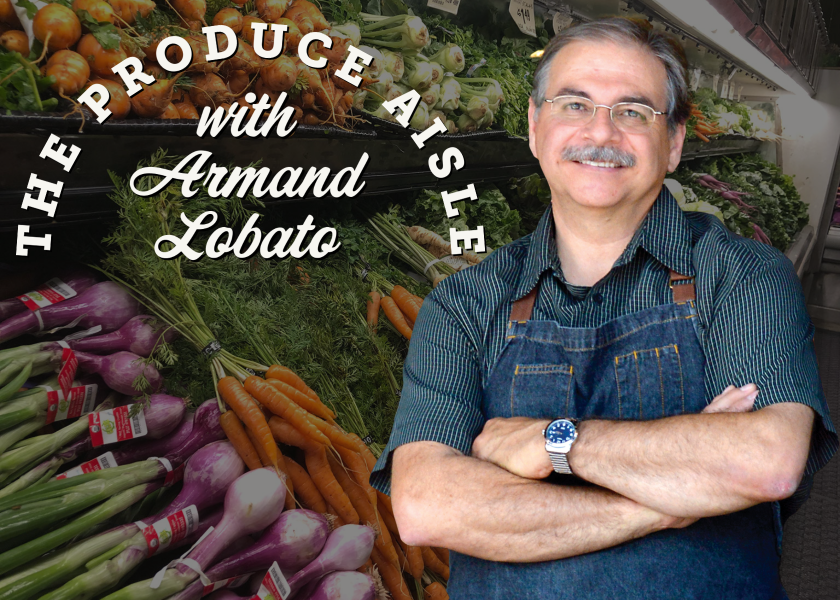Fine-tuning that just-in-time produce inventory

The “suits” filed into the grocery store one day — well-meaning company executives who sometimes liked to make an entrance. One paused to study, of all things, spatulas in the housewares aisle.
“There’s at least 20 spatulas on this J hook,” he observed. “How many do we sell in a week, two? Ten, tops? That means that (adding machine whirring in his head) there is way too much inventory in our stores.”
Not too many spatulas, mind you. Too much inventory, period.
Because of this utensil revelation, the company pushed the concept chain-wide. In every department, the focus shifted to reducing inventory. If we normally had a four day overall “safety stock” in a warehouse, we did everything to change this to two. Or one.
This wasn’t easy. Mostly because there’s a big difference between the non-perishable spatula supply versus, say, fresh produce.
More from Armand: The curse of the little gray desk
Produce buyers as a rule tend to naturally run a lean inventory. Like in the stores, the thinking is, “Just enough inventory until the next delivery” — with enough safety stock on hand just in case expected inbound quantities are limited, a truck is late, or if there’s a rejection.
To be fair, inventory control is a big deal.
When a company has excess inventory, that’s a lot of money tied up inside trailers or sitting idle in warehouse reserve slots. Further, loss potential for excess inventory increases (especially with fresh produce) as the longer the product sits, the greater potential for aged inventory, mishandling or damage.
At the warehouse or store level, that’s 100% shrink when this occurs. Not good.
So, I can understand the emphasis that our entourage placed on buckling down on excess inventory. The plethora of spatulas was a snapshot which, if magnified times 50,000 SKUs, can translate into millions of dollars that an organization would be better off investing elsewhere.
However, as with any company initiative, some directives can become misguided. No one buys into JIT (just in time) inventory management more than this old produce scribe. In an ideal world, when the produce delivery arrives a department ought to be fresh, full and inviting to customers, with little or no backstock in reserve.
More from Armand: Take time to write that order
In reality, produce loads run late. Factors such as time of month, weather, erratic ad movement and more wreak havoc with inventory control. It takes care and experience to fine-tune the balance of having enough product to minimize out-of-stocks, but not so much to risk excess shrink.
Monitoring produce inventory is a constant, elusive work-in-progress. Spatulas, it isn’t.
Armand Lobato works for the Idaho Potato Commission. His 40 years’ experience in the produce business span a range of foodservice and retail positions.







